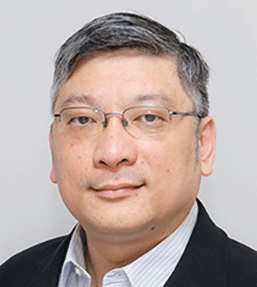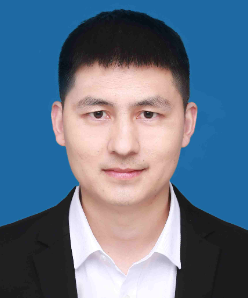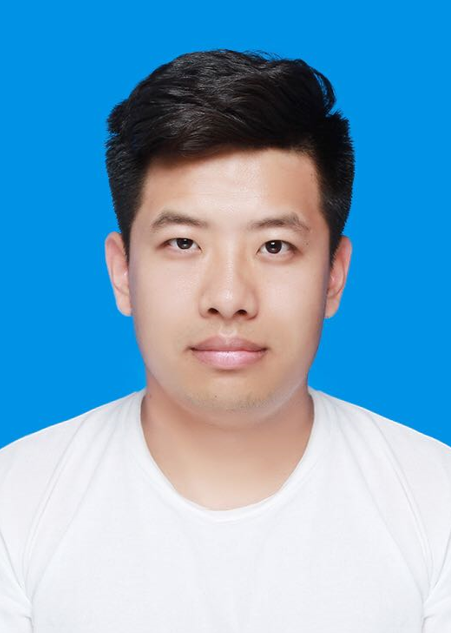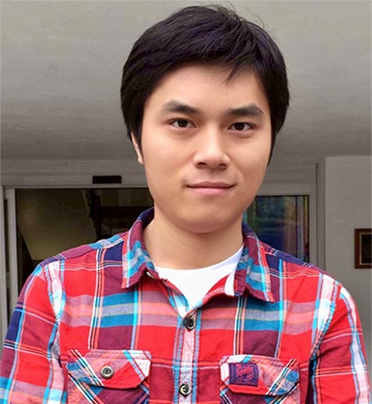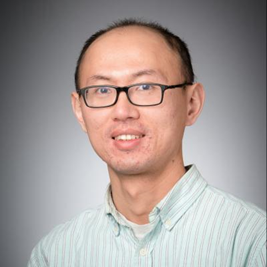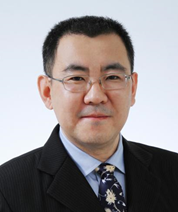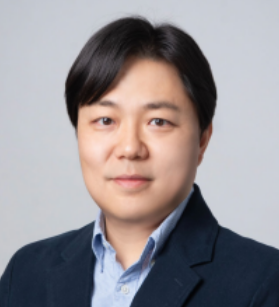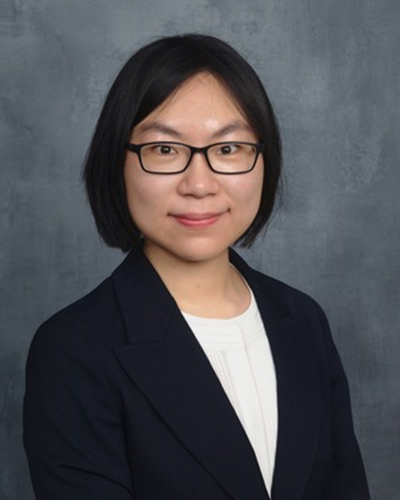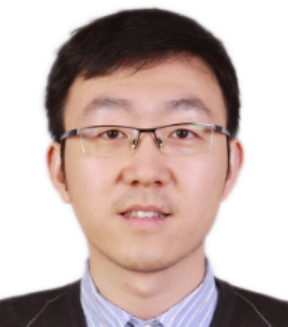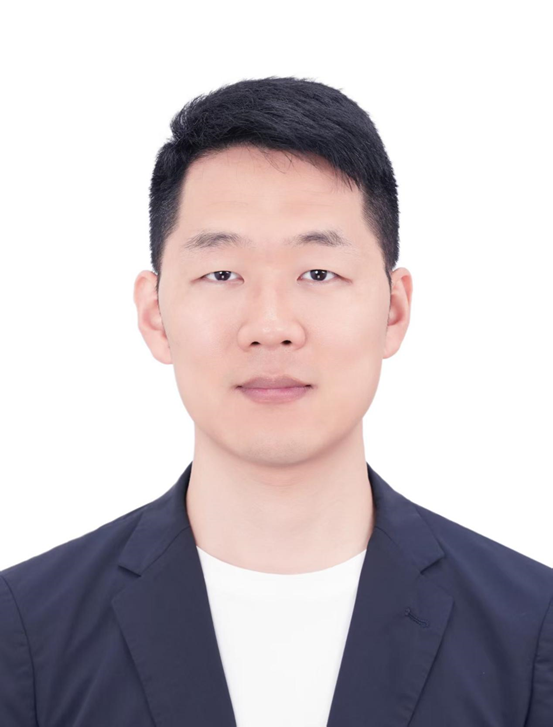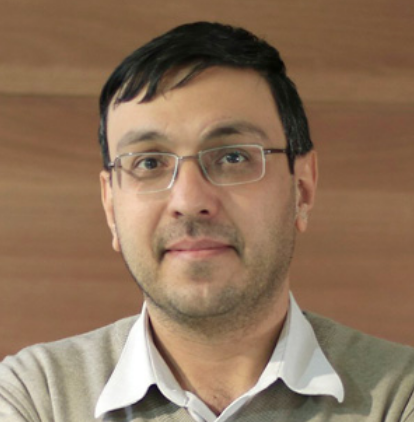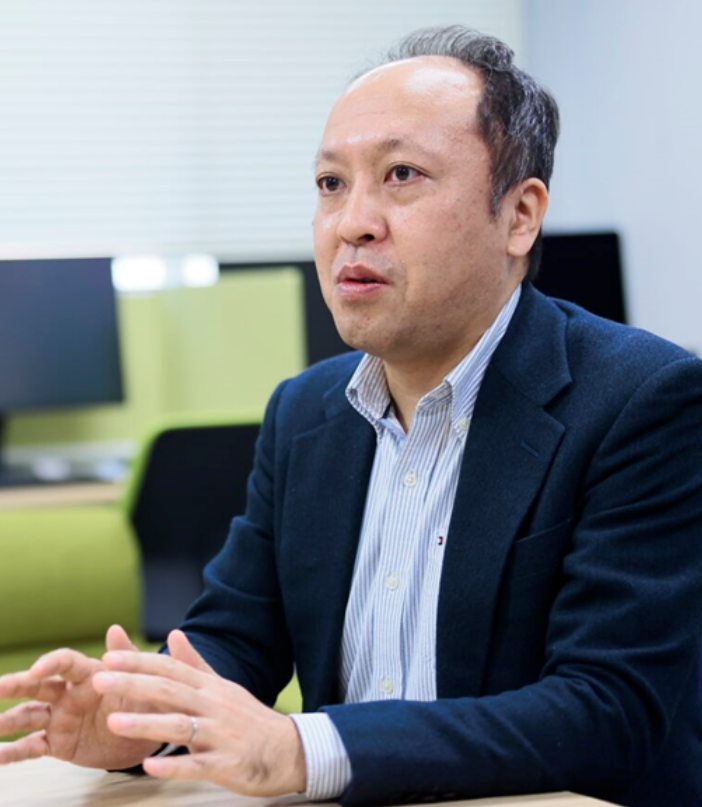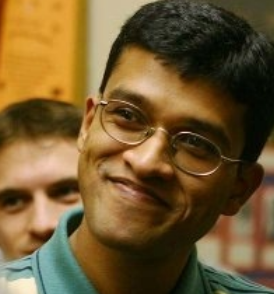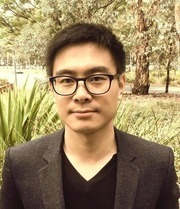
Topic 1: Advanced Coding Technology
| Wai Ho MOW Professor The Hong Kong University of Science and Technology Title: On Short Linear Codes with Nearly Optimal Asymptotic Frame Error Rate Abstract: Motivated by the ultra-reliable low-latency communications (URLLC) applications, short linear codes achieving a maximal coding gain at a low target frame error rate are of practical interest. In 2023, the speaker and his ex-MPhil student, Murad Abdullah, introduced the asymptotic frame error rate (AFER) optimality criterion for linear codes over the AWGN channel and presented several simple constructions of AFER-optimal binary linear block codes. In effect, the AFER optimality criterion extends the classical dmin optimality criterion by adding the secondary criterion to minimize the error coefficient (i.e., the number of dmin error patterns), and it aims to maximize the coding gain as the target FER tends to zero (or equivalently, minimize the FER as Eb/No tends to infinity). Somewhat surprisingly, the above results were mainly inspired by the results of a new computer search of short polarization-adjusted convolutional (PAC) codes. Many of the searched PAC codes turned out to be newly discovered AFER-optimal or nearly AFER-optimal binary linear block codes. Proofs of AFER optimality crucially depends on the known bounds on the error coefficients given the dmin value due to Patrick Sole, et al. (ITW'21) and Shitao Li et al. (T-IT, 2025). This talk will give a brief overview of the topic and its opportunities. Biography: Wai Ho Mow received his PhD in Information Engineering from the Chinese University of Hong Kong in 1993. He was an Assistant Professor at the Nanyang Technological University, Singapore, during 1997-1999. He has been with the Hong Kong University of Science and Technology since 2000 and is currently a Professor and an ex-Associate Dean of Engineering. His research areas include wireless communications, display-camera communications, coding and information theory. He pioneered the lattice approach to signal detection problems, including sphere decoding and complex lattice reduction-aided detection. He gave the most general unified constructions of perfect roots-of-unity (aka CAZAC) sequences, which have been widely used as communication preambles and radar signals. He published two books and 220+ journal/conference publications and is the inventor of 30+ patents. His joint work won the top prizes of 10+ project/paper competitions, including the 2014 HK U-21 IoT Gold Award for Revolutional Concept and the Best Mobile App Award at ACM MobiCom'2013. A novel picture-embedding 2D barcode, PiCode, developed by the HKUST Barcode Group under his leadership was highlighted as one of the four local innovations in the 2015 International IT Fest, a flagship event organized by the Office of Government Information Officer, Hong Kong. He was the general/program chair of six conferences, incl. SETA’2018@HK and was the Financial Chair of ISIT'2015@HK. He was the Chair of the Hong Kong Chapter, IEEE Information Theory Society in 2005 and was a founding Vice-Chair. He served on the editorial boards of seven journals, incl. the IEEE Transactions on Wireless Communications. He is a past member of the Radio Spectrum Advisory Committee, Office of the Telecommunications Authority of the Hong Kong S.A.R. Government. |
| Xuan He Associate Professor Southwest Jiaotong University Title: Hardware-Friendly High-Performance LDPC Decoding Schemes Abstract: Hardware-friendly high-performance low-density parity-check (LDPC) decoding schemes can deliver ultra-high throughput and low latency at low implementation complexity and cost, thereby ensuring the real-time reliability and the scalable deployment of high-speed communication systems such as 5G/6G. This report examines such schemes along three dimensions: scheduling scheme design, variable node (VN) update optimization, and check node (CN) update realization. First, we introduce a scheduling scheme with the block cyclic shift property which can greatly facilitate the hardware reuse among different layers of LDPC decoders. Second, we propose a finite alphabet iterative decoder whose VN update is optimized based on maximizing mutual information. It can approach the decoding performance of the floating-point sum-product algorithm, even with an exchanged message precision of only 3 bits. Finally, we present a monotone double-ended queue-based realization for minima calculation in the CN update of shuffled min-sum algorithms. This realization can greatly improve the hardware efficiency without sacrificing the decoding performance. Biography: Xuan He received the PhD degree from the University of Electronic Science and Technology of China in 2018. From 2018 to 2020, he was a Postdoctoral Research Fellow with the Singapore University of Technology and Design. He is currently an associate professor with the School of Information Science and Technology at Southwest Jiaotong University, China. His main research interests include channel coding and its applications in DNA storage. He won the Best Paper Award of the Information Theory Society of the Chinese Institute of Electronics in 2024. Since October 2024, he has been serving as an associate editor of IEEE Communications Letters. |
| Qianfan Wang Postdoctoral Fellow, City University of Hong Kong Title: Toward 6G: Guessing Decoding for Short-Blocklength Codes Abstract: Beyond-5G and 6G demand ultra-reliable, low-latency links at short blocklengths, motivating universal decoders. Guessing decoding—ranking noise or codeword candidates by (approximate) likelihood—offers a unifying approach. This talk synthesizes two leading families: GRAND and GCD. We outline practical orderings and implementations; establish ML optimality under suitable stopping rules; derive saddle-point formulas for the average number of searches; and corroborate them via simulation. We quantify losses under finite search budgets, compare worst-case/average complexity, and show how advances transfer between GRAND and GCD. The results map out the regimes where each method excels and distill guidance for deploying universal guessing decoders in next-generation short-blocklength systems. Biography: Qianfan Wang is a Postdoctoral Fellow at City University of Hong Kong and an Associate Researcher at CityU (Dongguan). His work focuses on information theory and coding for wireless communications and on quantum error-correcting codes. He has published 50+ papers, including 30+ as first author, in journals such as IEEE TIT, IEEE TCOM, and IEEE TVT, and at conferences including ISIT, Globecom, ICC, and WCNC. He is a recipient of multiple Best Paper awards, has served on technical program committees for major conferences, and currently serves as an Editor for IEEE TCOM. |
| Ling Liu Associate Professor Xidian University (Guangzhou) Title: Improving the Performance of Polar Codes Using Feedback Abstract: As is well known, polar codes are a coding scheme capable of achieving the Shannon capacity. Over the past decade, both academia and industry have been dedicated to improving their finite-length decoding performance, leading to the proposal of various decoding algorithms. This presentation will discuss how to enhance the decoding performance of polar codes in the presence of feedback. We will begin with a brief review of the classic SK coding, then introduce the details of feedback-based polar coding schemes and establish their connection with lossless compression. It is hoped that this presentation can offer new perspectives for the development of next-generation coding paradigms. Biography: Dr. Ling Liu is an associate professor at the Guangzhou Institute of Technology, Xidian University. He earned his bachelor's degree from Nanjing University (2008), master's degree from Peking University (2011), and Ph.D. from Imperial College London (2015), all in electronic engineering. He previously worked at Huawei Central Research Institute, where he was engaged in research on 5G polar codes. In 2023, he joined Xidian University. He has led projects funded by the National Natural Science Foundation of China, the Provincial Natural Science Foundation of Guangdong, and the Tencent Rhino-Bird Research Program. He received the Best Paper Award at IEEE WCSP 2021. |
Topic 2: Semantic Communication
| Jun Chen Professor McMaster University Title: On the Fundamental Limits of Generative Communication Abstract: Motivated by the emerging paradigm of generative communication, this talk explores the problem of channel-aware optimal transport, where a block of i.i.d. random variables is transmitted through a memoryless channel to generate another block of i.i.d. random variables with a prescribed marginal distribution such that the end-to-end distortion is minimized. With unlimited common randomness available to the encoder and decoder, the source-channel separation architecture is shown to be asymptotically optimal as the blocklength approaches infinity. On the other hand, in the absence of common randomness, the source-channel separation architecture is generally suboptimal. For this scenario, a hybrid coding scheme is proposed, which partially retains the generative capabilities of the given channel while enabling reliable transmission of digital information. It is demonstrated that the proposed hybrid coding scheme can outperform both separation-based and uncoded schemes. Biography: Jun Chen received the B.S. degree in Electronic Engineering from Shanghai Jiao Tong University in 2001, and the M.S. and Ph.D. degrees in Electrical and Computer Engineering from Cornell University in 2004 and 2006, respectively. He was a Postdoctoral Research Associate in the Coordinated Science Laboratory at the University of Illinois at Urbana-Champaign from September 2005 to July 2006, and a Postdoctoral Fellow at the IBM Thomas J. Watson Research Center from July 2006 to August 2007. Since September 2007 he has been with the Department of Electrical and Computer Engineering at McMaster University, where he is currently a Professor. He held the title of the Barber-Gennum Chair in Information Technology from 2008 to 2013 and the Joseph Ip Distinguished Engineering Fellow from 2016 to 2018. He was a recipient of the Josef Raviv Memorial Postdoctoral Fellowship (2006), the Early Researcher Award from the Province of Ontario (2010), the IBM Faculty Award (2010), the ICC Best Paper Award (2020), the JSPS Invitational Fellowship (2021), and the ECE Instructor Award (2023). He was an Associate Editor of the IEEE Transactions on Information Theory (2014 - 2016), an Editor of the IEEE Transactions on Green Communications and Networking (2020 - 2021), and a Guest Editor of the Special Issue on Modern Compression for the IEEE Journal on Selected Areas in Information Theory (2022). He is currently serving as an Associate Editor of the IEEE Transactions on Information Theory and an Associate Editor of the IEEE Transactions on Communications. |
| Kai Niu Professor Beijing University of Posts and Telecommunications Title: Semantic Information Theory and Method Abstract: The convergence of communication and artificial intelligence represents a pivotal trend in future information processing, with semantic information emerging as a new medium for information interaction. This talk begins by introducing the fundamental characteristics of semantic information, thati is synonymity, followed by a concise overview of the basic framework of semantic information theory, including its measurement system and the performance limits of semantic communication. Finally, it presents the system framework based on synonymous mapping and typical results of semantic encoding and transmission. It is foreseeable that semantic communication will become a new technological paradigm in future communications, offering promising application prospects. Biography: Niu Kai received the B.S. degree in information engineering and the Ph.D. degree in signal and information processing from Beijing University of Posts and Telecommunications (BUPT), Beijing, China, in 1998 and 2003, respectively. He is currently a Professor with the School of Artificial Intelligence, BUPT. His research interests include channel coding theory and applications, semantic communication and broadband wireless communication. He has published more than 200 academic papers, and his proposed high performance compilation code algorithm for polar code has become the mainstream scheme of 5G standard, and won the first prize of Natural Science of Science and Technology Award of the Chinese Institute of Electronics. |
| Yongjune Kim Associate Professor Pohang University of Science and Technology Title: CrossMPT: Cross-attention Message-passing Transformer for Error Correcting Codes Abstract: Error correcting codes (ECCs) are indispensable for reliable transmission in communication systems. Recent advancements in deep learning have catalyzed the exploration of ECC decoders based on neural networks. Among these, transformer-based neural decoders have achieved state-of-the-art decoding performance. We propose a novel Cross-Attention Message-Passing Transformer (CrossMPT), which shares key operational principles with conventional message-passing decoders. While conventional transformer-based decoders employ a self-attention mechanism without distinguishing between magnitude and syndrome embeddings, CrossMPT updates these two types of embeddings separately and iteratively via two masked cross-attention blocks. The mask matrices are determined by the code's parity-check matrix, which explicitly captures and removes irrelevant relationships between the magnitude and syndrome embeddings. Our experimental results show that CrossMPT significantly outperforms existing neural network-based decoders for various code classes. Notably, CrossMPT achieves this decoding performance improvement while significantly reducing memory usage, computational complexity, inference time, and training time. Biography: Yongjune Kim is an Associate Professor in the Department of Electrical Engineering at Pohang University of Science and Technology (POSTECH) and an Adjunct Professor at Yonsei University. His research interests include coding theory, communication theory, and machine learning. Before joining POSTECH, he was an Assistant Professor in the Department of Electrical Engineering and Computer Science (EECS) at DGIST and a Postdoctoral Research Associate in the Coordinated Science Laboratory (CSL) at the University of Illinois at Urbana-Champaign (UIUC), where he was mentored by Prof. Naresh R. Shanbhag and Prof. Lav R. Varshney. He also worked at Western Digital Research, Samsung Electronics, and Samsung Advanced Institute of Technology (SAIT). He received his PhD degree in Electrical and Computer Engineering (ECE) from Carnegie Mellon University (CMU), advised by Prof. B. V. K. Vijaya Kumar (Vijayakumar Bhagavatula). He earned his BS and MS degrees in ECE from Seoul National University (SNU), Korea, advised by Prof. Jong-Seon No. He received several awards, including the IEEE ComSoc Data Storage Technical Committee Best Student Paper Award, the Best Paper Award at the 2016 IEEE International Conference on Communications (ICC), the Best Paper Award (honorable mention) at the 2018 IEEE International Symposium on Circuits and Systems (ISCAS), and the Best Paper Award at the 31st Samsung Semiconductor Technology Symposium. He serves as an Editor for IEEE Transactions on Communications. |
| Xueyan Niu Principal Engineer, Huawei Technologies Co., Ltd. Title: Token-Level Communication and Editing in the Era of Large Language Models Abstract: In recent years, AI technologies represented by large language models (LLMs) has risen rapidly. Therefore, it is necessary to rethink the classical information theory framework, which is centered on reliable communication issues, and explore level-2 information theory, that is, information theory oriented towards semantics. This talk starts from the semantic perspective of communications, using token as the core concept instead of bit, to discuss the rate-distortion-perception trade-off in information theory, application of generative models, Transformer memory capacity, and information theoretic interpretation of key mechanisms such as prompt compression and knowledge editing of LLMs. Biography: Xueyan Niu has been a Principal Engineer with the Theory Lab at Huawei 2012 Labs since 2022. Prior to that, she was a researcher at the Cognitive Computing Lab, Baidu Research, in 2021. She received her Ph.D. degree in operations research from Purdue University, West Lafayette, IN, USA, in 2021 and the B.S. degree in mathematics and applied mathematics from Peking University, Beijing, China, in 2016. Her research lies at the intersection of machine learning, information theory, and communications. Dr. Niu was a recipient of the EECS Rising Star Award from UC Berkeley in 2020. Her research in partial information decomposition has been recognized with the Outstanding Early Career Researcher Paper Award at 2020 IEEE International Symposium on Information Theory and Its Applications. She is the Guest Editor of the Special Issue on Goal-Oriented Semantic Communication and Networking for IEEE Network magazine. |
| Dong Liu Professor The University of Science and Technology of China Title: A Deep Learning Approach to the Rate-Distortion Bounds of Image Compression Abstract: Lossy image compression is a fundamental technology for visual communications. Classical image compression algorithms have reached a performance bottleneck. Recently, deep learning has enabled the development of end-to-end optimized image compression schemes, which have surpassed classical compression algorithms. This talk begins with a discussion of the ideal source coding system in information theory, followed by an outline of the practical constraints and assumptions involved in constructing practical end-to-end learned image compression schemes, along with their resulting performance gaps. We quantitatively analyze these gaps by estimating the bounds of the rate–distortion function of natural images. Moreover, by scaling up the parameter count of image compression models, we empirically validate the achievable rate–distortion performance and reveal the scaling law in lossy image compression. The talk concludes with a discussion on the connections between compression and intelligence, highlighting potential directions for future research in image compression. Biography: Dong Liu received the B.S. and Ph.D. degrees in electrical engineering from the University of Science and Technology of China (USTC), Hefei, China, in 2004 and 2009, respectively. He was a Member of Research Staff with Nokia Research Center, Beijing, China, from 2009 to 2012. He has been a faculty member at USTC since 2012 and currently holds the position of full professor. His research interests include image and video coding, processing, and visual intelligence. He has authored or co-authored more than 200 papers in international journals and conferences, which were cited more than 25,000 times according to Google Scholar (h-index is 60). He has more than 40 granted patents, and dozens of technique proposals adopted by standardization groups. He received 2009 IEEE TCSVT Best Paper Award and ISCAS 2025 Grand Challenge Top Creativity Paper Award. He and his students were winners of several technical challenges held in CVPR 2025, ICIP 2024, and ISCAS 2023. He is a Senior Member of IEEE, CCF, and CSIG, an elected member of IVMSP-TC of IEEE SP Society, an elected member of MSA-TC of IEEE CAS Society, and an elected member of Multimedia TC of CSIG. He serves or had served as the Chair of IEEE 1857.11 Standard Working Subgroup (also known as Future Video Coding Study Group), an Associate Editor for IEEE TIP, a Guest Editor for IEEE TCSVT, and a TPC co-chair for ICME 2026. |
| Tao Guo Associate Professor Southeast University Title: Rate-distortion Theory for Multi-user Semantic Compression Abstract: We consider the semantic rate-distortion problem motivated by task-oriented data compression with side information. The semantic information corresponding to the task, which is not observable to the encoder, shows impact on the observations through a joint probability distribution. The decoder is interested in recovering the observation and making an inference of the semantic information under certain distortion constraints. We establish the information-theoretic limits for the tradeoff between compression rates and distortions by fully characterizing the rate-distortion function. An estimation-compression (EC) separation scheme is also considered. Therein, the semantic information is intrinsic and not observable. The EC scheme first estimates the semantic information from the observed message and then compresses the estimation subject to a rate-distortion regime. The corresponding EC rate-distortion tradeoff is obtained. In particular, the EC separation scheme achieves the semantic rate-distortion function if the estimationis a sufficient statistic of the semantic information based on the observed message. Biography: Tao Guo is an Associate Professor at the School of Cyber Science and Engineering, Southeast University, Nanjing, China. He received his B.Eng. degree from Xidian University in 2013 and his Ph.D. degree from The Chinese University of Hong Kong in 2018. He has conducted research at the Technical University of Munich, Texas A&M University, University of California, Los Angeles, and Huawei Hong Kong Research Center. His research primarily focuses on information theory, information security, and privacy protection. He has published over 30 papers in information theory journals and conferences. |
Topic 3: Cryptography and Information Theory
| Amin Gohari Vice-Chancellor Associate Professor The Chinese University of Hong Kong Title: On the Source Model Key Agreement Problem Abstract: We consider the source model key agreement problem involving two legitimate parties and an eavesdropper who observe n i.i.d. samples of X, Y, and Z, respectively. In this paper, we focus on one of the simplest instances where the key capacity remains open, specifically when X and Y are binary random variables and Z is a function of the pair (X, Y). The best-known upper bound on the key capacity is characterized by an inf-max optimization problem that generally lacks a closed-form solution. We provide general conditions under which the upper bound reduces to I(X;Y). As an example, we consider the XOR setting in which X and Y are binary, and Z is the XOR of X and Y. The upper bound reduces to I(X;Y) for this source. Next, we conjecture that the rate I(X;Y) is not achievable for the XOR source and provide some ideas that might be useful for developing a new upper bound on the source model problem. Biography: Amin Gohari received his B.Sc. degree from Sharif University, Iran, in 2004 and his Ph.D. degree in electrical engineering from the University of California, Berkeley in 2010. Dr. Gohari received the 2010 Eli Jury Award from UC Berkeley, Department of Electrical Engineering and Computer Sciences, for “outstanding achievement in the area of communication networks,” and the 2009-2010 Bernard Friedman Memorial Prize in Applied Mathematics from UC Berkeley, Department of Mathematics, for “demonstrated ability to do research in applied mathematics.” He also received the Gold Medal from the 41st International Mathematical Olympiad (IMO 2000) and the First Prize from the 9th International Mathematical Competition for University Students (IMC 2002). He received the IEEE Iran Section Young Researcher Award in 2021. Dr. Gohari served as an Associate Editor for the IEEE Transactions on Information Theory from 2018-2021. He was also a finalist for the IEEE Jack Keil Wolf ISIT Student Paper Award for three consecutive years from 2008-2010 during his PhD. |
| Mitsugu Iwamoto Professor University of Electro-Communications Title: Information-Theoretic Security, Revisited Abstract: Shannon was the first to discuss information-theoretic security. He provided a mathematical formulation of security against attackers with unbounded computational power and concluded that statistical independence is fundamental to defining security. Later, computational security was introduced, guaranteeing security only against computationally bounded adversaries. This notion was formulated in several ways that differ from Shannon's original definition, such as semantic security and indistinguishability. In this talk, I will discuss why Shannon defined information-theoretic security in terms of statistical independence and how this concept evolved into various forms that naturally connect to computational security. Biography: Mitsugu Iwamoto received the B.E., M.E., and Ph.D. degrees from the University of Tokyo, Tokyo, Japan, in 1999, 2001, and 2004, respectively. In 2004, he joined the University of Electro-Communications, where he is currently a Professor of the Department of Informatics. His research interests include information theory, information security, and cryptography. He was a technical program co-chair of the 2021 IEEE Information Theory Workshop. Currently, he serves as the President-Elect of ESS of IEICE. He is a member of IEICE, IEEE, and IACR. |
| Vinod M. Prabhakaran Associate Professor Tata Institute of Fundamental Research, India Title: Source Models for the Byzantine Generals Problem and Byzantine Distributed Function Computation Abstract: In the Byzantine Generals Problem, a commanding general has a message (e.g., attack/retreat) for a set of lieutenant generals. If the commander acts honestly, all honest lieutenants must learn the message; and even if the commander is malicious, all the honest lieutenants must agree on the same message. This problem constitutes a fundamental primitive in distributed computing and cryptography. It is known that there is no information-theoretically secure solution for the problem if the generals communicate over private pairwise links and one-third or more of them are controlled by an adversary; in particular, it is infeasible for the 3-generals version with one commander and two lieutenants if any one of them may be malicious. However, the availability of correlated observations (i.e., a source model) at the generals can be used to overcome this impossibility. I will review our characterization of the source models that permit a solution to the problem. It shows that a larger class of correlated sources may be used to solve the problem than was previously believed. I will also discuss a byzantine distributed function computation problem whose formulation was inspired by the scheme that led to the above characterization. Based on joint works with Hari Krishnan Anilkumar, Varun Narayanan, Neha Sangwan, and Shun Watanabe. Biography: Vinod Prabhakaran received the M.E. degree from Indian Institute of Science in 2001 and the Ph.D. degree from the University of California at Berkeley in 2007. He was a Post-Doctoral Researcher with the University of Illinois at Urbana–Champaign and the Ecole Polytechnique Fédérale de Lausanne, Switzerland. Since 2011, he has been with the School of Technology and Computer Science, Tata Institute of Fundamental Research, Mumbai. He serves as an Area Editor of security and privacy for the IEEE Transactions on Information Theory. |
Other Invited Talks
| Guodong Shi Associate Professor The University of Sydney Title: Differential Privacy over Affine Manifolds Abstract: We consider differential privacy mechanisms when the input data are constrained to lie in affine manifolds, which are available as prior knowledge to adversaries. In this setting, the definition of neighborhood adjacency must be formulated with respect to the intrinsic geometry of the manifolds. We demonstrate that such affine-manifold constraints can fundamentally alter the attainable privacy levels relative to the unconstrained case. In particular, we derive necessary and sufficient conditions under which differential privacy can be realized via structured noise injection mechanisms, wherein correlated Gaussian or Laplace noise distributions, rather than i.i.d. perturbations, are calibrated to the dataset. Based on these characterizations, we develop explicit noise calibration procedures that guarantee the tight realization of any prescribed privacy budget with a matching noise magnitude. We further show that the proposed framework admits direct applications to differentially private cloud-based control, privacy-preserving average consensus, and potentially to quantum information processing, all of which naturally involve affine-manifold constraints. Biography: Guodong Shi received the Ph.D. degree in systems theory from the Academy of Mathematics and Systems Science, Chinese Academy of Sciences, Beijing, China in 2010. From 2010 to 2014, he was a Postdoctoral Researcher at the ACCESS Linnaeus Centre, KTH Royal Institute of Technology, Stockholm, Sweden. From 2014 to 2018, he was with the Research School of Engineering, The Australian National University, Canberra, ACT, Australia, as a Lecturer and then Senior Lecturer, and a Future Engineering Research Leadership Fellow. Since 2019 he has been with the Australian Center for Robotics, The University of Sydney, NSW, Australia. His research interests include distributed control systems, quantum networking and decisions, social opinion dynamics, and their interface in renewable energies, robotics, and climate change. |
| Hsin-Po Wang Assistant Professor National Taiwan University Title: If Rand()%10 is Bad, How to Use TRNG Efficiently? Abstract: Simulating an arbitrary discrete distribution $D \in [0, 1]^n$ using fair coin tosses incurs trade-offs between entropy complexity and space and time complexity. Shannon's theory suggests that $H(D)$ tosses are necessary and sufficient, but does not guarantee exact distribution. Knuth and Yao showed that a decision tree consumes fewer than $H(D) + 2$ tosses for one exact sample. Draper and Saad's recent work addresses the space and time aspect, showing that $H(D) + 2$ tosses, $O(n \log(n) \log(m))$ memory, and $O(H(D))$ operations are all it costs, where $m$ is the common denominator of the probability masses in $D$ and $n$ is the number of possible outcomes. In this paper, MichelangeRoll recycles leftover entropy to break the ``$+2$'' barrier. With $O((n + 1/\varepsilon) \log(m/\varepsilon))$ memory, the entropy cost of generating a ongoing sequence of $D$ is reduced to $H(D) + \varepsilon$ per sample. Biograpgy: Hsin-Po Wang is an Assistant Professor in EE and GICE at National Taiwan University. His research interests lie in information theory and coding theory, where techniques in algebra, combinatorics, and probability theory are applied to polar codes, group testing, distributed storage, distributed computation, exact distribution shaping, and database optimization. Hsin-Po earned his B.Sc. in Math at NTU and completed his Ph.D. in Math at UIUC. He has held research positions at UC San Diego, UC Berkeley, and the Simons Institute for the Theory of Computing. Known for his extensive, creative use of Tikz figures in papers, Hsin-Po is equally passionate about speedrun techniques for educational purposes and recreational math such as assembling binder clips into fullerene-like structures. |
